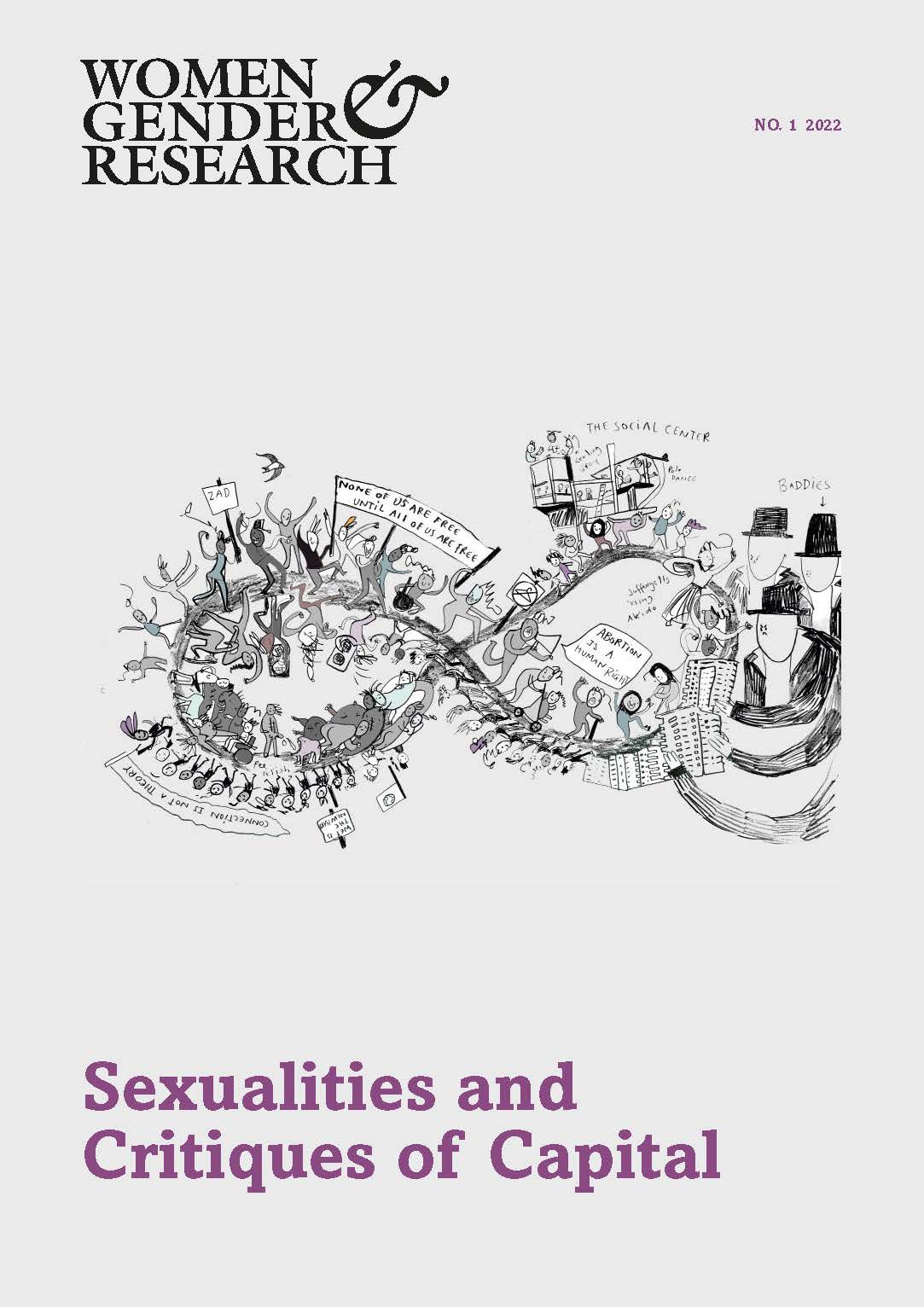Queering Comradeship: Anti-Capitalist Relations in We Are Who We Are
Anti-Capitalist Relations in We Are Who We Are
DOI:
https://doi.org/10.7146/kkf.v32i1.128110Keywords:
Keywords: Queer comradeship, radical relationality, youth activism, Jodi Dean, We Are Who We Are, Luca GuadagninoAbstract
Queering Comradeship: Anti-Capitalist Relations in We Are Who We Are. This article argues that We Are Who We Are’s value lies in its exploration of the radical relationality of comradeship, a concept theorized recently by Jodi Dean. The profoundly queer connection forged and cultivated by the show’s dual protagonists, Caitlyn/Harper Poythress and Fraser Wilson, inspiringly models a comradeship that overflows with everyday possibilities for contemporary anti-capitalist praxis. The article begins by tracing the outlines of the material landscape in which Fraser and Caitlyn/Harper’s relationship unfolds, namely an American military base which captures the contradictory dynamics of our contemporary social totality. The queer theory of Jasbir Puar is also used to highlight the intersections of gender/sexuality, imperialism, and political economy. The article then offers a close reading of the show, using Dean’s (2019) four theses of the comrade as an organizing structure. Special attention is paid to the relational dynamics between Caitlyn/Harper and Fraser, juxtaposing them with those of others in their immediate lives. The article concludes by using recent sociological research on youth activism to argue that the political legacy left by Fraser and Caitlyn/Harper can, in fact, inspire revolutionary change and promote the everyday subversion of global war capital.
References
Dean, J. 2018. Crowds and Party. London: Verson.
Dean, J. 2019. Comrade: An Essay on Political Belonging. London: Verso.
Earl, J., Maher, T.V., and Elliott, T. 2017. Youth, Activism, and Social Movement. Sociology Compass. 11, 1-14.
Harvey, D. 2005. From Globalization to the New Imperialism. In: Appelbaum, R.P. and Robinson, W.I. eds. Critical Globalization Studies. New York: Routledge, 91-100.
Mikdashi, M. and Puar, J.K. 2016. Queer Theory and Permanent War. GLQ: A Journal of Lesbian and Gay Studies. 22(2), 215-22.
Poniewozik, J. 2020. “We Are Who We Are” Captures Not-So-Innocents Abroad. The New York Times. [Online], September 13. [Accessed 4 July 2021]. Available from: https://www.nytimes.com/2020/09/13/arts/television/review-we-are-who-we-are.html
Puar, J.K. 2013. Rethinking Homonationalism. International Journal of Middle East Studies. 45(2), 336-9.
Robinson, W.I. 2019. Accumulation Crisis and Global Police State. Critical Sociology. 45(6), 845-58.
Soraya, S. 2020. Luca Guadagnino’s We Are Who We Are is a Lyrical, Meditative Slow Burn. Vanity Fair. [Online]. September 20. [Accessed 4 July 2021]. Available from: https://www.vanityfair.com/hollywood/2020/09/we-are-who-we-are-luca-guadagnino-review
Weldon, G. 2020. In Teen Drama “We Are Who We Are,” We're Still Figuring Out Who We Are. NPR. [Online]. September 14. [Accessed 4 July 2021]. Available from: https://www.npr.org/2020/09/14/910703394/in-teen-drama-we-are-who-we-are-we-re-still-figuring-out-who-we-are
Downloads
Published
How to Cite
Issue
Section
License
Copyright (c) 2022 David Reznik

This work is licensed under a Creative Commons Attribution-NonCommercial 4.0 International License.
Publications in Women, Gender and Research are licensed under Creative Commons License: CC Attribution-NonCommercial 4.0

